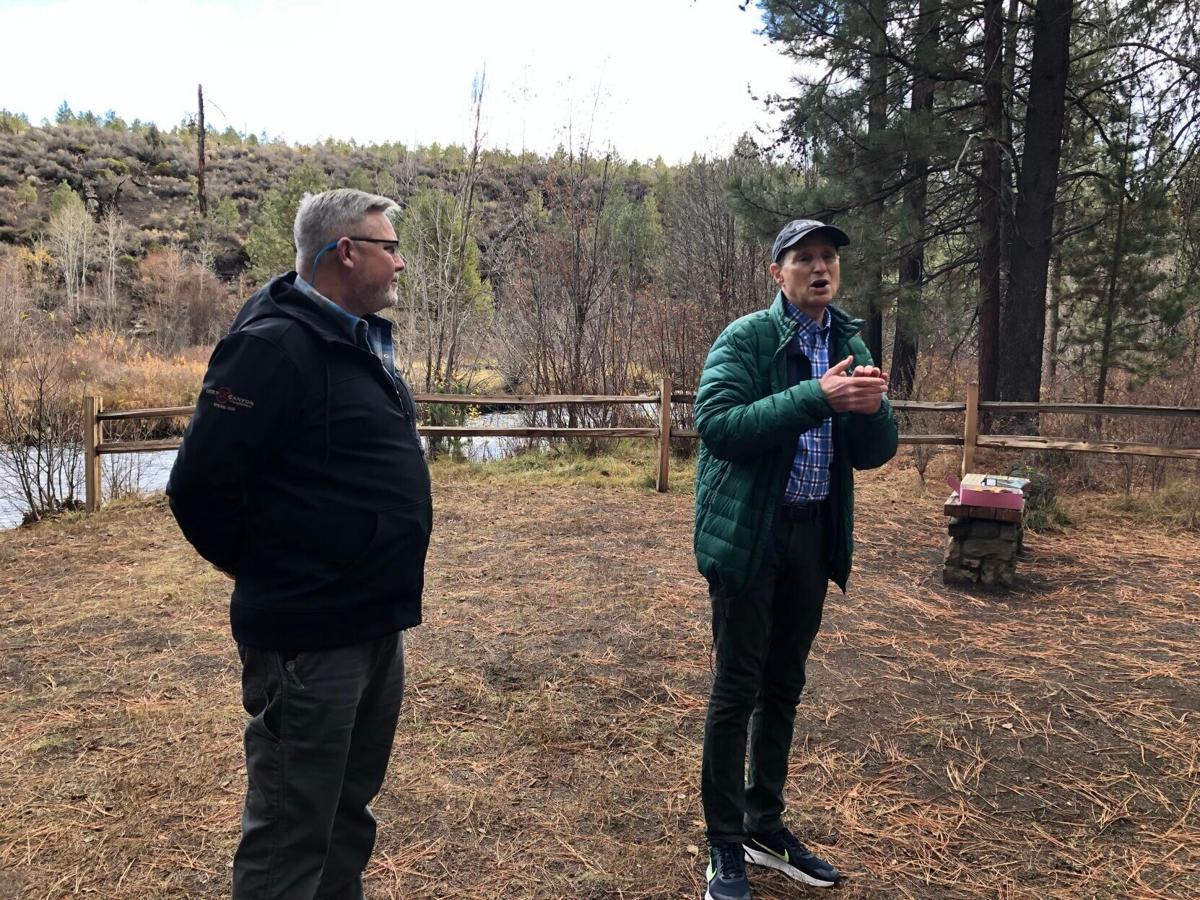This article was published on: 11/10/21 4:20 PM
U.S. Sen. Ron Wyden, D-Ore., said Tuesday that a plan to protect thousands of miles of rivers and streams in Oregon from development could become law next year.
Wyden — meeting in Shevlin Park with students who urged the senator to get the legislation passed — said the River Democracy Act could be passed in 2022 after the dust settles from President Joe Biden’s infrastructure bill.
If passed, the act would add nearly 4,700 miles of rivers and streams in Oregon to the Wild and Scenic Rivers System. The river system is a special designation that protects rivers and develops them for tourism, in the same way that a national park develops a designated area of land.
“My sense is when we get done with Build Back Better, … when that gets done, I think there will be an effort on both sides of the aisle to lay out a schedule for the rest of the Congress and into 2022,” said Wyden. “I am pushing hard to make sure that public lands is high up on that schedule, that is what I am pushing for action in 2022.”
The bill is not without its critics. Several Eastern Oregon counties oppose the bill, with commissioners saying it would lock up land near the streams. Farmers and ranchers have also questioned the need for the bill, and pointed to some “rivers” included in it that do not flow year-round.
The act, which was introduced in Congress in February, could help business owners in Central Oregon, particularly those involved in fishing and tourism, Wyden said.
Tye Krueger, owner of the Confluence Fly Shop in Bend, urged Wyden to pass the legislation as soon as possible, saying that passage of the act is critical to the protection of fish spawning and rearing habitat in Central Oregon.
“Companies like mine cannot thrive without healthy, self-sustaining populations of wild steelhead, salmon and trout. These species are in desperate need of our help,” said Krueger.
Krueger handed Wyden two thick binders containing letters of support for the River Democracy Act from students, advocates and local businesses in Central Oregon.
Wyden also spoke with students from Cascades Academy and Pacific Crest Middle School.
The act includes sections of several rivers in Central Oregon, including the Deschutes and Fall rivers, Whychus Creek, the North Fork of the Crooked River, and Tumalo Creek.
Oregon currently has 2,173 miles designated in the Wild and Scenic Rivers System, but there is plenty of room to add more — statewide, Oregon is home to 110,994 miles of rivers and streams.
Wyden, with the sounds of Tumalo Creek gurgling behind him, said the bill is about protecting clean drinking water, reducing wildfire risk and helping small businesses in the recreation industry.
“It’s a big economic multiplier for our state,” Wyden said. “The fact is we can recreate and achieve other important goals, like reducing fire risk, simultaneously. The two aren’t mutually exclusive. We can do both.”
Rivers that fall under the wild and scenic designation receive assessments from federal land managers for wildfire risks. That has become more critical in recent years for Central Oregon as drought keeps forests in tinderbox conditions.
Wyden said the bill was created in Oregon with river nominations from thousands of Oregonians and is not a Washington, D.C., creation.
“It was written here in our state … in this community and scores of others,” said Wyden. “This is vintage Oregon; this is the way we do it.”




